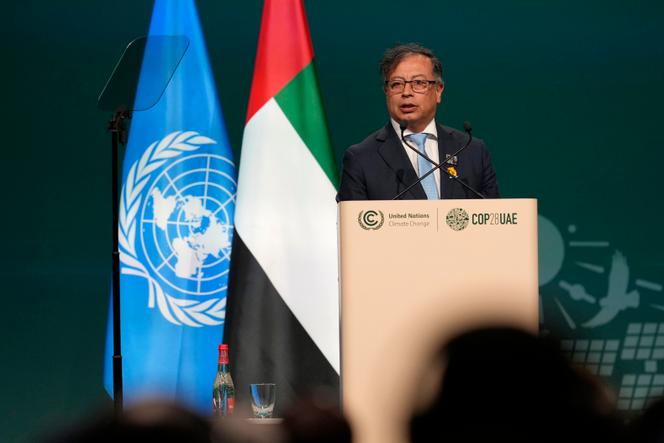


At the 28th Conference of the Parties on Climate Change (COP28) in Dubai, 10 small island states and Colombia pledged to promote a non-proliferation treaty on fossil fuels. Around 100 cities and thousands of environmental organizations are backing the initiative. Twice the geographic size of France, with a population of 50 million people, Colombia, which produces some 800,000 barrels of crude oil a day and 85 million tonnes of coal a year, is a giant in this coalition. It includes states such as Samoa, Palau, Fiji, Antigua and Barbuda and East Timor.
In power since August 2022, left-wing President Gustavo Petro wants to set his country on the path toward an ambitious energy transition. In January, he announced that his government would not sign any new hydrocarbon exploration contracts. The right-wing opposition is up in arms. Many on the left and center have their doubts.
"It is not up to a country like Colombia, with its very poor infrastructure, to assume the cost of the energy transition," said Sergio Guzman, Director of the Colombia Risk Analysis Institute, reminding us that Colombia produces only 0.3% of global CO2 emissions, which are largely responsible for climate change.
Petro knows he is not unanimously supported. "Even society in my country will say, 'How can the president contemplate such economic suicide, knowing that we depend on oil and coal?'," he said in Dubai. According to a February poll by the Invamer Institute, 59% of Colombians disapproved of the decision to end oil exploration contracts, and 65% were in favor of the establishment of multinational companies and foreign investment.
But Petro holds the line. "Today, we are witnessing a huge confrontation between fossil capital and human life, and we have to choose sides. We are choosing the side of life," he said.
With only seven years' worth of oil and gas reserves left, Colombia remains heavily dependent on fossil fuels. Taxes, dividends and royalties provide 15% of government revenue. Oil and coal exports account for 55% of total exports. The Colombian government intends to allocate these revenues to a fund to finance sustainable energy projects.
"How does Petro plan to finance the shortfall in revenue for the country?" asked right-wing senator Maria Fernanda Cabal. Economists doubt that tourism can take over from the hydrocarbon sector. For Guzman, "Mr. Petro is posing as an environmental martyr on the international stage, to the detriment of the country's interests."
You have 30% of this article left to read. The rest is for subscribers only.
